Anthony Marr's CARE-7 tour blog #6
Northern California
It was two restful days at Ramiro's house, with egrets and ducks in the slough outside by day, and countless stars above at night. But the last morning started with a sting. Upon checking email, there was a message from a supposed ally hazing me for conducting the CARE-7 tour in a "loan Ferrari", and called Anthony Damiano a "common thug". While my blog #5, which the person obviously has not read, speaks for itself, Nan defended Anthony D by saying, "... as far as Anthony Damiano being a 'common thug', I do not let thugs into my home and make them welcome. He is a gentleman and a sweet person and we were honored to have both Anthonys here for a few days." In any case, a supposed zen person ought to remain unperturbed by such trivialities, so after a polite reply, we simply moved on.
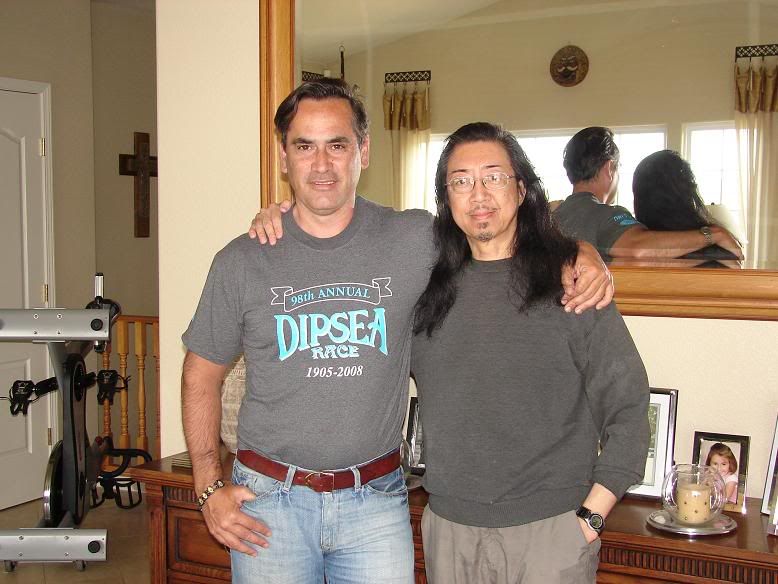
Ramiro came in around lunch time and the three of us simply basked in each other's good vibes by just working on our respective laptops in the same picture-windowed room overlooking the marshy field. Good thing he came in, since I was planning on going the Marin-SF-Hwy101-Monterey route, which could have taken twice as long as the route Ramiro recommended - Marin-Berkeley-580-Oakland-880-Monterey - which did bring us to our potluck venue in Pacific Grove right on time (6 pm).
There was not a lot of people at the potluck, but in this case, it was quality that counted, in the persons of our two hosts Robert and Casey Lucius. Without repeating what is to follow in this blog, I called Dr. Alex Hershaft of FARM (Farm Animal Rights Movement), head organizer of the Animal Rights National Conference, this morning, to recommend them as new speakers for the conference, saying that they will open up a new vista for the ARNC. Alex seemed interested, and asked me to ask them to call him directly.
To go two steps further, I wrote Alex an email, saying,
"Hi Alex,
"Further to my phone call to you this morning recommending Lt.-Col. Robert Lucius and Lt.-Prof. Casey Lucius as new speakers at the 2010 AR conference in DC, please find attached info sent to me by Robert this afternoon. In addition to the info therein, may I repeat that he and Casey are both personable, compassionate, knowledgeable, down to earth, and humble to boot. I also met their cat which they brought home from Vietnam. There is no doubt in my mind that he/she/they will add a brand new dimension to the AR Conference.
"Sincerely,
"Anthony"
Following are the four items that Robert sent me this afternoon:
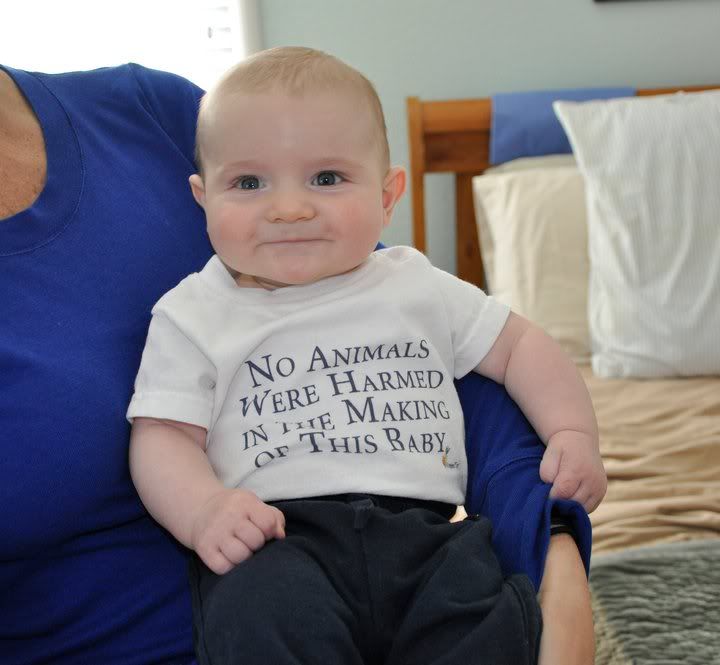
"Robert Lucius is an active-duty Marine Lieutenant Colonel with more than twenty years of service, the last ten of which have been as a Foreign Area Officer, a specialist in foreign languages and cultures. In recent years he has served in Indonesian and Vietnam, primarily as a military diplomat. Some of his primary duties overseas included coordinating humanitarian relief missions involving dozens of public, private and non-profit organizations. Robert is now the Associate Provost for Continuing Education at the Defense Language Institute Foreign Language Center in Monterey, CA. Casey Lucius is a former Naval Intelligence Officer now serving as a civilian professor at the Naval Postgraduate School in Monterey, CA. She recently published a book entitled 'Vietnam's Political Process: How Education Shapes Political Decision-Making'.
"Their active involvement in animal welfare activities really began in the summer of 2006 following an official U.S. humanitarian assistance mission coordinated by Robert to Lai Chau Province in northwestern Vietnam near the Laos and Chinese borders. During a hand-over of donated U.S. excess military medical supplies to local village medical clinics, Robert experienced a very intense personal awakening that turned him into a committed animal advocate. A man who had spent all his adult life trying to protect the weak and oppressed among human society became a defender of the exploited and oppressed among the non-humans.
"He immediately quit the carnist lifestyle and began his eventual transition to the vegan lifestyle. His transformational awakening was featured in the Summer 2007 issue of PETA’s Animal Times magazine and in a 2009 book by Judy Carman and Tina Volpe, “The Missing Peace: The hidden power of our kinship with animals”. During the remaining two years Robert and Casey led a number of animal rescues in Vietnam, including a young injured street kitten they named 'Dewi' and adopted.
"In August 2008, Robert, Casey and Dewi returned to the United States and took up residence on California’s Monterey Peninsula, where Robert now serves as the Associate Provost for Continuing Education at the Defense Language Institute Foreign Language Center. Since moving back to the United States, Robert has been active in a number of local animal welfare organizations, including the Monterey Country SPCA and the Animal Friends Rescue Project, from which he and Casey adopted 'Charlie'. Both he and Casey were very active supporting of California ballot initiative Proposition 2, which passed in November 2008. Robert was even named PETA’s Sexiest Vegetarian in the Marine Corps in 2008 (http://blog.peta.org/archives/bob_lucius/)
In 2009, Robert completed a ten-month Graduate Certificate in Community Advocacy program through George Washington University to learn more about how to use the power of grassroots advocacy to improve the lives of animals. This program was initiated by the Humane Society of the United States and brought together ten other advocates from around the United States. Although Robert and Casey had dreamt of spearheading an animal advocacy project in Vietnam for several years, Robert’s participation in the program gave them the tools and insight they needed to formally establish the Kairos Coalition and kick-start their Humane Edutainment project.
Kairos Coalition was founded as a non-profit last year with the sole objective of bringing together public, private and non-profit stakeholders in order to find common ground from which to advance Humane Education objectives. Our first project is being implemented where Robert and Casey served as diplomats just few years back in Vietnam.
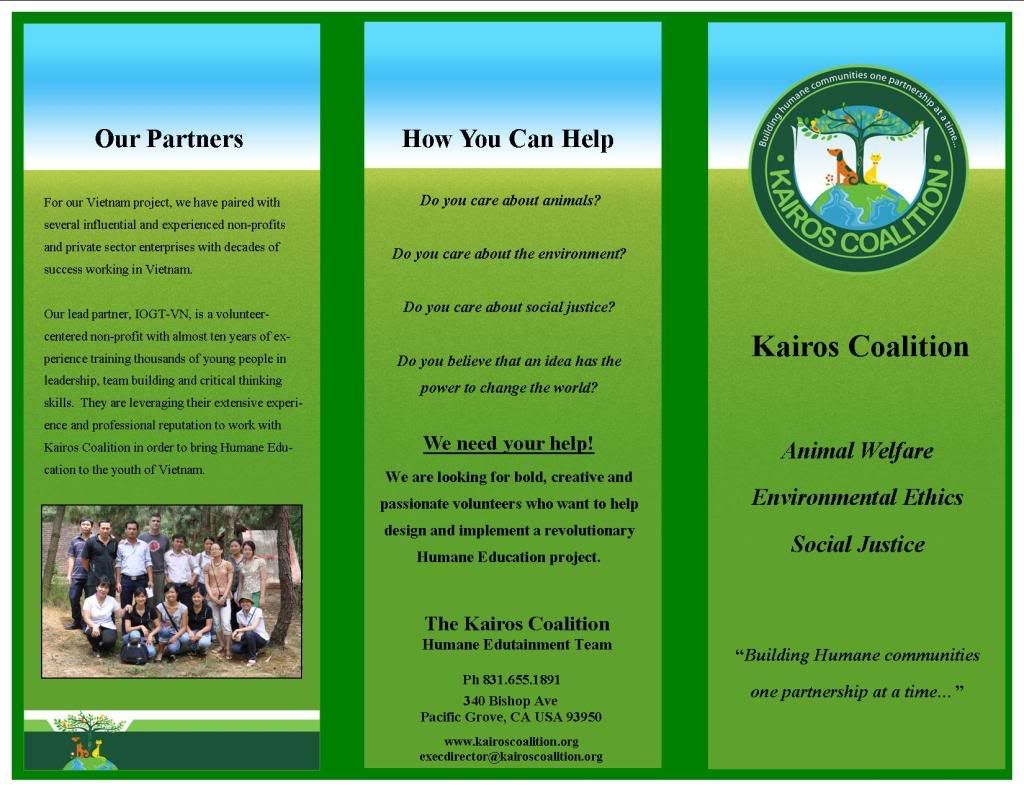
"Vietnam is only now fully emerging from decades of social and economic hardships wrought by the combined effects of colonialism and war. It is now a nation on the cusp of a major transformation from a primarily agrarian economy to an industrialized and developed nation. Endless possibilities lie ahead for this ancient land and its people.
"Since the implementation of Đổi Mới (literally 'renovation') policies introduced by the Communist Party leadership in 1986, Vietnam has steadily moved away from a centrally-planned economy to a more market-oriented model that is increasingly globalized.
"Vietnam has since enjoyed an average annual economic growth of 6.5 percent over the last two decades. It has achieved one of the highest growth rates among developing countries and successfully raised per capita income from $220 in 1994 to more than $1,000 in 2008, when Vietnam was finally removed from the list of the world’s least developed countries. Even with a projected lower growth rate for 2009 (3.9 percent), Vietnam’s poverty rate has continued to fall to less than a third of what is was in the mid-1980s. As a result, Vietnam’s citizens have witnessed a rate of unparalleled economic opportunity and the development of a nascent middle class.
All this, however, has not come without a cost: Industrial development and rapid urbanization have also helped accelerate the decline of traditional Vietnamese values by eroding the nuclear, multi-generational families that have long served as the foundation stone of Vietnamese culture. Young men and women are moving away from their home villages in hopes of striking it rich in the nation’s urban centers, while market-oriented reforms have ushered in an era often characterized by a 'get-rich quick' mentality and unabashed consumerism.
"The continuing erosion of Vietnam’s traditional ethical paradigm has more than at any other time in Vietnam’s history created the potential for a moral gap to develop. The Humane Edutainment project is intended to provide an alternative vision built on the foundations of Vietnam’s traditional ethical teachings, but which aims to sensitize Vietnamese youth to the core values associated with Humane Education, including reverence for all life, respect for the dignity of each person, an appreciation for the fragility of our shared environment, and the exercise of personal responsibility and compassion for achieving a cruelty-free and sustainable world. By fostering curiosity, creativity, and critical thinking, humane education aims to empower youth with the realization that they can become powerful change agents within their own communities.
"Western nations are only just now beginning to fully appreciate the full range of negative social, health, economic and environmental consequences that have resulted from our collective and individual decisions over the last fifty years. We are now paying a terrible price for our unchecked consumer appetites and an unwillingness to look ahead to where the road we have chosen has taken us; towards a poisoned environment, crumbling communities, economic malaise and a public health crisis.
Vietnam today stands at the same developmental crossroads where the United States stood a half-century ago. They will soon similarly face challenges about the nature of development and modernization, and the solutions they inevitably implement will have consequences that will remain with them for generations, for good and ill. We believe that a culturally-relevant Humane Education program can help Vietnam’s next generations re-imagine the range of possible solutions to the challenges of industrialization and development in ways that might be able to contribute to the prevention of decades of unnecessary and destructive abuse in the name of uniformed and rampant commercial consumption unchecked by ethical and moral limits. Humane Education is an investment in Vietnam’s future.
"Imagine what the United States would look like now if we could go back fifty years and retroactively apply the lessons of the last half-century’s struggles for social justice, animal welfare and the “green” movement. What would today’s generations think about the exploitation of the environment and animals for food, for entertainment or for clothing if they had only learned a different set of ethical possibilities from the very start, knew the ultimate price they would have to pay for their appetites and thus chose an entirely different path? Imagine that altered reality. That possibility still lies ahead for Vietnam.
"Our coalition is centered around a very well-established Vietnamese NGO located in Hanoi. IOGT-VN has a decade of experience training large numbers of youth in interpersonal, leadership and lifestyle skills. They are politically well-connected and have the respect of the educational establishment. In addition to IOGT-VN, there are a number of other local NGOs and foreign subject matter experts that are part of the coalition, working together to create a Humane Education pilot program centered on what we call 'Humane Edutainment'.
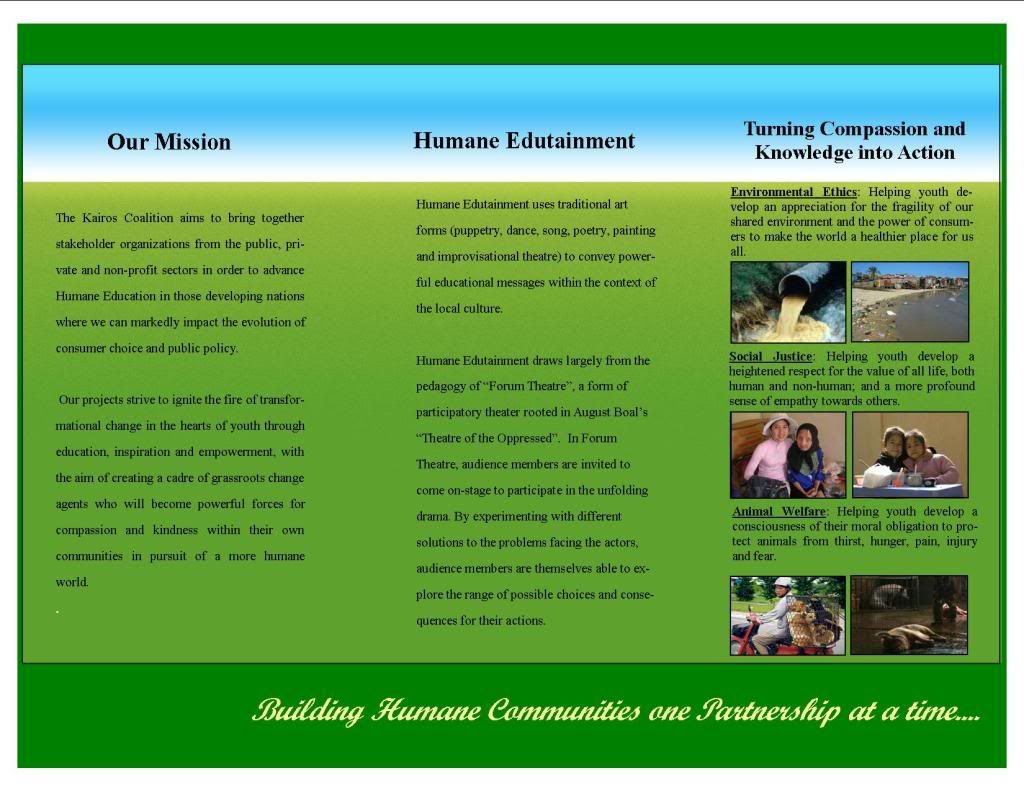
“Humane Edutainment employs a pedagogy distilled from centuries of Vietnamese cultural tradition. Employing traditional art forms, such as puppetry, dance, song, poetry, painting and improvisational theatre, important lessons about animal welfare, environmental ethics, and social justice can be conveyed in simple but powerful ways to audiences ranging from those with little formal education to those who are very highly educated. During the 1940s and 1950s, the Vietnam Communist Party relied extensively on “Culture and Drama Teams”, employing this methodology to effectively propagandize Marxist-Leninist ideology in rural communities. It remains today a popular educational technique used throughout Vietnam to reach all social strata, regardless or background and education level. It is an educational approach that is quintessentially Vietnamese and part of the shared cultural heritage of all Vietnamese.
"Humane Edutainment also draws from the pedagogy of “Forum Theatre”, a form of participatory theater rooted in Augusto Boal’s “Theatre of the Oppressed”. In Forum Theater, audience members are encouraged to stop a performance, often a short scene in which an ethical dilemma is presented, in order to propose different actions for the actors to carry out on-stage in an attempt to alter the outcome of the action on-stage. Audience members are invited to come on-stage to take the place of the primary actors: They are no longer confined to being merely spectators of the unfolding drama, but instead become active participants empowered not just to imagine different possible outcomes, but to also put them into action by taking the drama in a different direction than that envisioned by the script.
"Their Humane Edutainment curriculum will address three main themes; Animal Welfare, Environmental Ethics and Social Justice. We will scrupulously endeavor to avoid any perception that the curriculum represents the importation of western values and foreign solutions for solving uniquely Vietnamese problems. Rather, this effort seeks to mine the deep treasure trove of traditional Vietnamese values and historical experiences in order to develop fresh and bold approaches for dealing with contemporary challenges. This curriculum will be developed for Vietnamese by Vietnamese. The broad strategic goals of our project are:
"Strategic Goals
"Create greater awareness among Vietnamese youth concerning the direct and indirect relationships between the choices we make as consumers and the health of the environment, the animal kingdom and our relationships with each other.
"Recruit and train a cadre of highly-motivated youth advocates to advance Humane Education messages in Vietnam.
"Coordinate and synergize collaboration between non-profit, for-profit and government stakeholders to achieve efficiencies of scale and reduce duplication of effort in the advancement of humane education objectives, specifically animal welfare, environmental stewardship and social justice.
"Begin to generate the political will necessary to nationalize Humane Education curricula in Vietnam.
"Generate media buzz that drives public interest and positive public opinion of Humane Education, particularly through coverage in youth newspapers and on youth television channels.
"We have already begun adding elements of animal welfare, primarily wildlife protection issues, to the basic IOGT-VN curricula. By this fall, assuming fundraising targets are met, we plan on launching our pilot Humane Edutainment program. This is a new sphere of activity for IOGT-VN, but they are eager and motivated to apply their significant political capital in support of this movement. Although wildlife conservation is a recognized movement in Vietnam, there are zero organizations advocating on behalf of domesticated animals - farm or companion - and there is much to be done not just to correct current abuses, but to head future ones that will inevitably arise if the trajectory of government policies and consumer choices is not altered. We envision this Humane Edutainment Pilot Project as but the first tentative step towards familiarizing not just the Hanoi student population with the principals and concepts of Humane Education, but also the general public, as well as those key influentials at the national, provincial and local levels of state government and the Communist Party bureaucracy.
"In its very essence, we are talking about Humane Nation Building.
"Why is this important to Robert and Casey personally? They just has a son - Bobby, who is being raised a vegan. Bobby and all the children are the key to the future of this world and all the creatures in it. 'If we don’t set the example, who will?'"
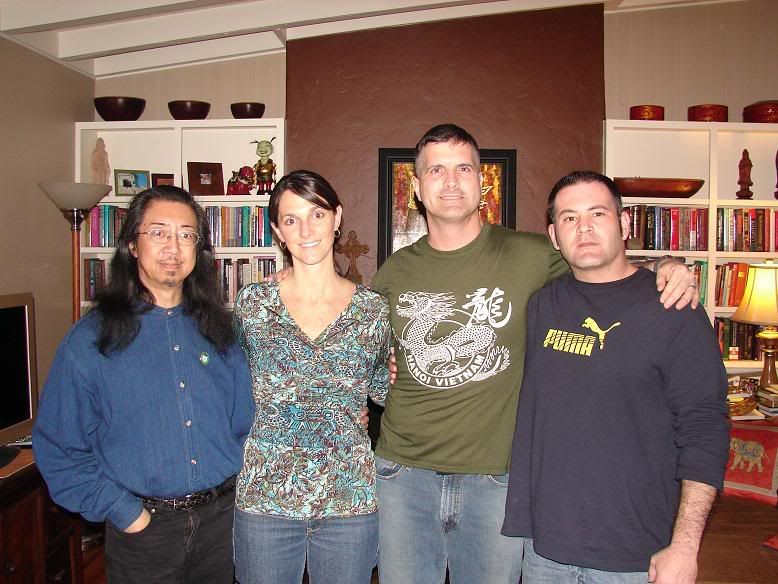
After the potluck last night, one of those present at the potluck, Emily C, led us to her place in nearby Marina to spend the next two nights. Amazingly, Emily, and her mom Laura, are both motorcycle riders, and, more amazingly still, Ninja 250 riders. The 80-mpg Ninja 250 is about as fuel efficient as a single-person vehicle could get short of a pure electric vehicle. But as long as the electricity is derived from coal, even the touted GM Volt is as polluting as any gasoline-burning vehicle.
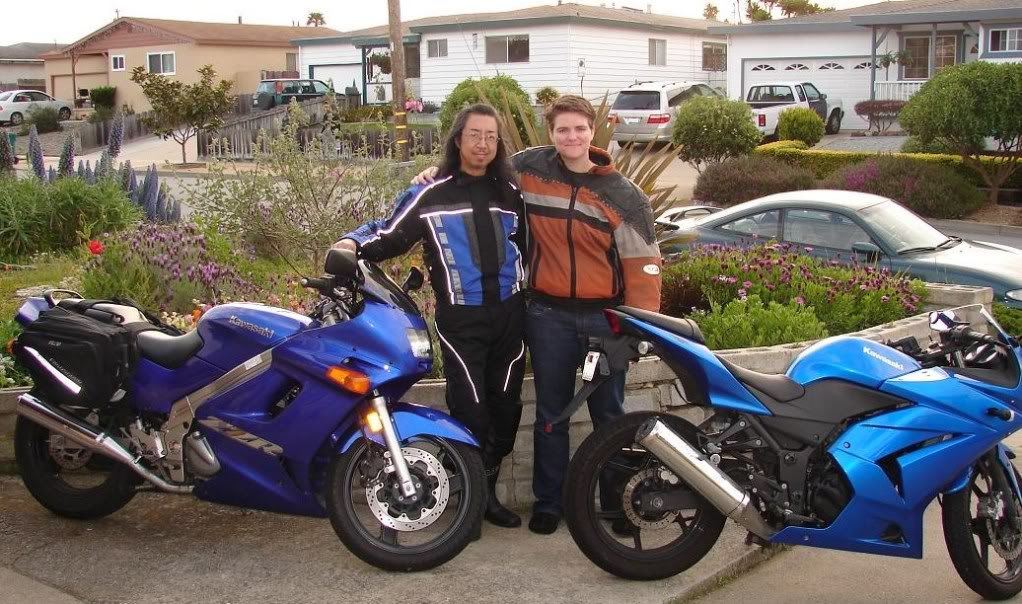
Today, Emily led me on an 80-mile return ride through the twisty roads of Carmel. Absolutely breathtaking - both the scenery and the ride. The bikes each sipped a little more than a gallon of fuel, but they gave me a poignant sense of the yet pristine beauty of this land which, if we pour our resources into transforming the energy structure of this society into a truly green and sustainable one, we might yet have a chance to preserve.
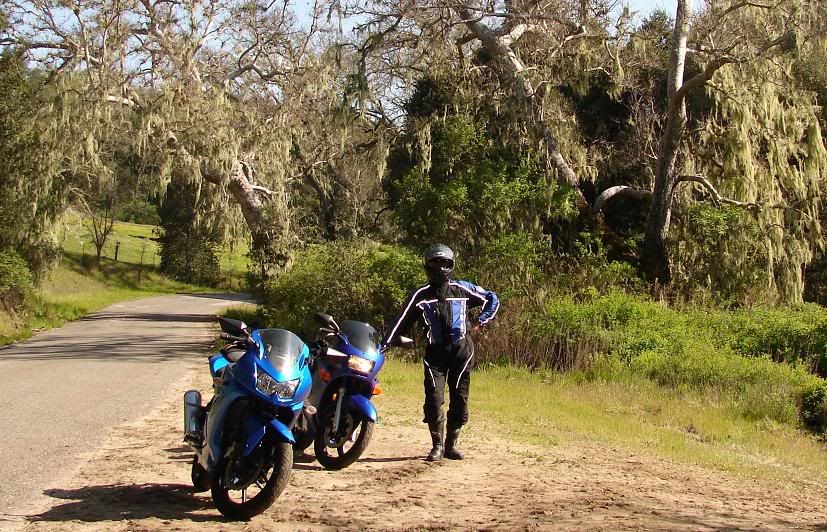
Tomorrow, we'll been heading down the coast to Los Angeles. I will ride the first stretch via Big Sur. Gorgeous pictures and unforeseen revelations forthcoming. Stay tuned.
Anthony Marr, Founder and President
Heal Our Planet Earth (HOPE)
Global Anti-Hunting Coalition (GAHC)
Anthony-Marr@HOPE-CARE.org
www.HOPE-CARE.org
www.ARConference.org
www.MySpace.com/AnthonyMarr
www.YouTube.com/AnthonyMarr
www.myspace.com/Anti-Hunting_Coalition
www.facebook.com/Anthony.Marr.001
www.facebook.com/Anthony-Hunting_Coalition
www.HomoSapiensSaveYourEarth.blogspot.com
www.facebook.com (search for “Anthony Marr Heal Our Planet Earth”)
No comments:
Post a Comment